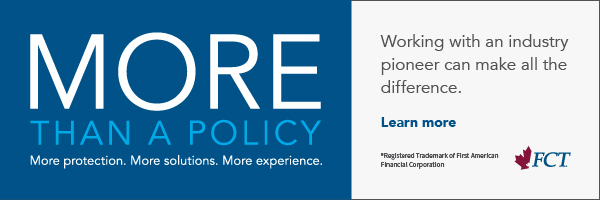Recent Articles
Efficiency Capital creates retrofit program for CRE, multires buildings
Efficiency Capital creates retrofit program for CRE
Toronto-based Efficiency Capital has created what it calls a unique program to facilitate, and to help property owners fund, building retrofits to improve their environmental performance and save money on energy and other system costs.
TRCA’s mass-timber HQ one of most energy-efficient
The Toronto & Region Conservation Authority’s new headquarters will be one of the most sustainable buildings of its kind on the continent, its designers say. Canadian-based sustainable architectural studio ZAS and Irish architectural firm Bucholz McEvoy designed the 87,000-square-foot structure.
Electric car company Lucid Motors enters Canada
US-based electric car brand Lucid Motors will open its first showroom in Canada this year in Vancouver. Lucid will disrupt the automotive market at a time when other electric car manufacturers are also expanding retail operations in this country.
Ottawa creates new council on sustainable finance
• Globe and Mail • Canada Newswire • Responsible Investor
OPINION: The federal government is launching a public-private advisory body to accelerate the adoption of sustainable finance measures. Kathy Bardswick, former CEO of the Co-operators Group, president of the Canadian Institute for Climate Choices, will chair the Sustainable Finance Action Council.
N.B. redistributes $163 million in carbon tax revenue
New Brunswick’s finance minister is returning $28 million to New Brunswickers through a personal income tax cut. Ernie Steeves says the benefit is part of the government’s commitment to recycle $163 million in revenue generated from the carbon tax.
Funds rapidly withdrawn from clean-energy ETFs
The boom in clean-energy funds is giving way to a bust as investors are yanking cash from the sector at the fastest pace in a year. Since the beginning of May, about US$154 million has been pulled from clean-energy ETFs.
Paris agreement overlooks wood pellet loophole
• GreenBiz
Wood pellets are burned as a form of biomass energy and are touted as “carbon neutral” in the global transition away from fossil fuels. But a recent report did not include the use of wood pellets in its energy budget.
Tesla not taking Bitcoin over environmental concerns
Tesla Inc. will no longer accept Bitcoin for car purchases, Chief Executive Elon Musk said on Wednesday, citing long-brewing environmental concerns for a swift reversal in the company’s position on the cryptocurrency.
Kentucky has 570 ideal sites for nano- and microgrids
• Microgrid Knowledge • Kentucky Regional Microgrids Resilience Study
Kentucky has 558 ideal sites for nanogrids and a dozen potential sites for community microgrids, according to the Kentucky Regional Microgrids for Resilience Study that was designed to help utilities, governments, and industry stakeholders move from planning to building microgrids.
Hydro-Quebec bid to supply power to NYC
Hydro-Québec has made a formal bid to help power the bright lights of New York City, opening up another front in its continuing battle to secure long-term electricity deals in the United States in the face of mounting opposition.
1st “green” fuel plant coming to Montreal East
• La Presse • La Presse • La Presse
Producing “green” energy by recycling C02 emanations from the chimneys of large industrial emitters is gaining ground in Quebec. The first plant will go into production next July in Montreal East, in the refinery sector.
Montreal cemetery embarks on ecological shift
Notre-Dame-des-Neiges Cemetery is undertaking the most important green shift in its history to reduce its ecological footprint and contribute to biodiversity on Mount Royal, while also respecting, enhancing, and developing natural environments.
EV charging in Metro Vancouver developments
• urbanYVR
In new residential buildings across Metro Vancouver, 100 per cent EV charging rough-in with wire is required. Planning for a new construction project requires architectural, structural, mechanical, and electrical engineering, and HVAC systems to meet regulations and certifications such as LEED.
Walmart to cut virgin plastic use
Walmart has agreed to cut its use of virgin plastic by 2025. Citing new data on the growing plastic pollution problem, As You Sow filed shareholder proposals with consumer goods companies and retailers for 2021, appealing to cut the use of plastic packaging.
Amazon issues $1 billion sustainability bond
Amazon has issued a $1 billion sustainability bond. The proceeds will fund projects in five areas, building on significant investments Amazon has made over the years: renewable energy, clean transportation, sustainable buildings, affordable housing, and socioeconomic advancement and empowerment.
Studies show consumers buying from responsible brands
• Forbes • Unilever Study
According to a study by Unilever, a third of all global consumers are now choosing to buy from brands they believe are doing social or environmental good.
EPA sets out to clean up coolants such as HFCs
• Green Biz • TreeHugger
Hydrofluorocarbons, or HFCs, were commercialized in the 1990s as a replacement for earlier refrigerants that were based on chlorofluorocarbons, or CFCs. CFCs were destroying the ozone layer, which is essential for protecting life from the sun’s harmful ultraviolet radiation.
Carbon capture key in Canada reaching net-zero
Carbon capture is the new buzzword in the oilpatch with Calgary’s producers leading a rush to invest in the sector. Mark Little, CEO of Suncor, believes the technology will “allow Canada to achieve its ambition of getting to net-zero by 2050.”
US business leaders urge court to keep Line 5 running
• Winnipeg Free Press • Globe and Mail (Sub. required) • Global News
Business leaders in Michigan, Ohio, and Wisconsin have joined forces with their Canadian counterparts over the Line 5 pipeline. The U.S. and Canadian Chambers of Commerce are also included in a legal brief filed with the U.S. District Court in Michigan.
IEA warns that CO2 emissions will increase
• Yale 360
Fatih Birol, executive director of the International Energy Agency (IEA), has warned that the world is moving too slowly in getting off fossil fuels. The IEA added that CO2 emissions are expected to experience their second-largest increase on record.
 Industry Events
Industry Events
-
Microgrid Knowledge (MGK) Conference 2024
Apr 22 2024
to Apr 24 2024
Baltimore, Maryland
-
Canada Green Building Council: Building Lasting Change 2024
Jun 05 2024
to Jun 06 2024
Toronto
-
Global Conference on Renewable Energy and Environmental Sustainability
Aug 16 2024
to Aug 18 2024
Vancouver, Canada











